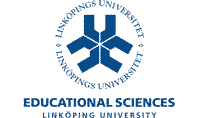|
|
| |
| SYLLABUS |
| Leading Learning Processes ,
15 ECTS Credits |
| |
COURSE CATEGORY Fristående kurs
MAIN FIELD OF STUDY
SUBJECT AREA Education
|
|
COURSE CODE |
|
911G15 |
|
| AIM OF THE COURSE |
On completion of the course the student should be able to:
- describe learning theories that explain a learning process as both an individual and a collective process
- identify formal and informal learning processes in the lives of adults
- describe and account for how leadership can be understood in relation to different learning processes
- describe the educational ideas behind different forms of education and apply these
- relate the concepts of gender and diversity to learning processes
- understand the importance of examination and evaluation in a learning process
- analyse learning processes based on different factors that influence learning and group processes.
- account for the own reflections and analyses, orally and in writing.
- critically review, discuss and reflect on different fields covered in the course |
| CONTENTS |
The course highlights different theories of learning, leadership and group processes based on what it means to lead a learning process. The student will study theories that highlight learning as individual and collective processes. Different forms of education and how they affect the learning process are also presented. The importance of a leader and the effects of leadership are discussed in this context. The course also covers gender and diversity aspects and the role of examination.
In addition to different theories of learning processes, the student also encounters different working methods such as lectures, role play, group assignments and seminars, and these working methods also function as course contents in relation to the aims of the course: to lead learning processes.
|
| TEACHING |
| The teaching takes the form of lectures, seminars, group work and applications, where students are expected to take an active role for their learning. The student is expected to come prepared to each session by, for example, reading literature, active participation in group assignments, discussing and giving constructive feedback on other students' work. |
| EXAMINATION |
The course is examined through an individual and a group assignment. The examination assignments should be presented orally and in writing in seminars.
Students failing an exam covering either the entire course or part of the course two times are entitled to have a new examiner appointed for the reexamination.
Students who have passed an examination may not retake it in order to improve their grades. |
| ADMISSION REQUIREMENTS |
|
| GRADING |
| A grade of Pass with Credit, Pass or Fail is given for the course |
| CERTIFICATE |
| Course certificate is issued by the Faculty Board on request. The Department provides a special form which should be submitted to the Student Affairs Division. |
| COURSE LITERATURE |
|
The course literature is decided upon by the department
in question. |
| OTHER INFORMATION |
Planning and implementation of a course must take its starting point in the wording of the syllabus. The course evaluation included in each course must therefore take up the question how well the course agrees with the syllabus.
The course is carried out in such a way that both men´s and women´s experience and knowledge is made visible and developed. |
| |
Leading Learning Processes
Att leda lärprocesser |
| |
Department responsible
for
the course or
equivalent:
IBL - Department of Behavioural Science and Learning |
| |
|
|
|
|
|
| Registrar No: 242/07-41
|
|
Course Code: 911G15 |
|
|
|
| |
|
Exam codes: see Local Computer System |
|
|
|
| Subject/Subject Area : |
|
|
|
|
|
| |
|
|
|
|
|
| Level |
|
Education level |
|
|
Subject Area Code |
|
Field of Education |
|
| G1X |
|
Basic level |
|
|
PE1 |
|
SA |
|
|
The syllabus was approved by the Board of Educational Sciences 2007-04-17
|
|
|
| |
